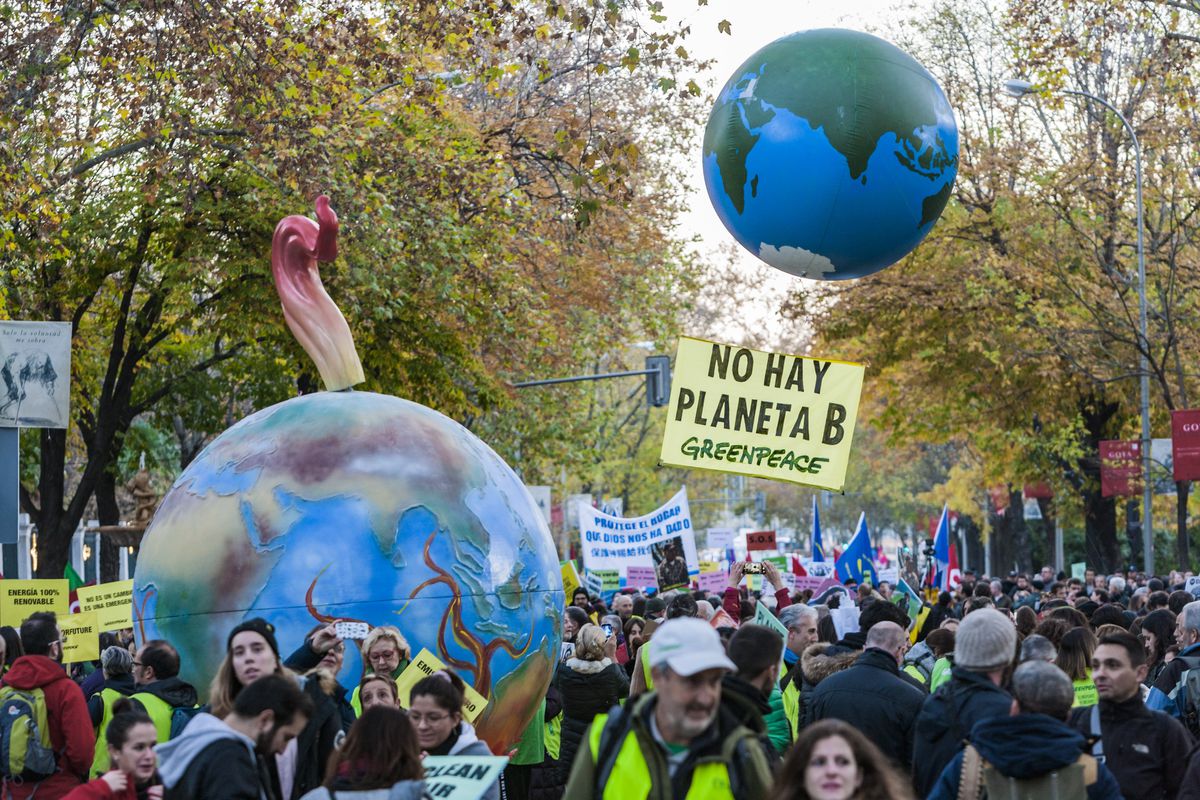Environmental activists, including Greenpeace and the Climate Action Network, around the world are calling on the United Nations to further delay a pivotal climate conference scheduled for this fall. The uneven rollout of COVID-19 vaccines around the world could prevent many delegates and advocates from attending, they say, especially representatives of countries hardest hit by both COVID-19 and the climate crisis.
The UK is preparing to host the climate talks in Glasgow in November, a year after they were supposed to take place. But the virus that delayed the talks in the first place is still killing thousands of people across the world daily, many of whom are living in countries where it’s hard to get a vaccine.
“Expecting already disadvantaged people to attend without access to vaccines, healthcare, and financial support to overcome the risks of participation, is not only unfair but prohibitive,” Juan Pablo Osornio, senior political lead for Greenpeace International, said in a statement today.
While the UN climate talks typically take place every year, this is no ordinary session. It’s been billed as the most consequential international negotiations on climate change since 2015 when nearly every country on Earth adopted the Paris agreement. Five years later, those countries were due to report on their progress and submit ramped-up commitments to curb climate pollution from fossil fuels.
Crucially, 2020 was also the deadline for the world to reach an important milestone when it comes to helping poorer nations adapt to the already devastating effects of climate change. Well-off countries were supposed to come together to offer $100 billion a year in climate financing for developing nations. That goal fell by the wayside as the pandemic strained the budgets for countries on both giving and receiving ends of climate finance.
That gives delegates and activists from the countries hardest hit by climate change all the more reason to worry about what will happen next if they don’t have a seat at the table at this year’s climate talks.
“There has always been an inherent power imbalance within the UN climate talks and this is now compounded by the health crisis,” Tasneem Essop, executive director of the Climate Action Network, said in a statement issued today by the group made up of 1,500 organizations across the world. “It is difficult to imagine there can be fair participation from the Global South under safe conditions and it should therefore be postponed until such time it can be,” Essop said.
Organizers for this year’s UN climate talks — called the 26th Conference of Parties, or COP26 — are so far still pushing ahead with plans for an in-person meeting. “COP26 has already been postponed by one year, and we are all too aware climate change has not taken time off,” COP26 president-designate Alok Sharma said in a statement today. “If we are to deliver for our planet, we need all countries and civil society to bring their ideas and ambition to Glasgow.”
Conference organizers said that they would get vaccines to delegates that needed them. But vaccine rollout and communication have been slow and unclear. Those who requested a vaccine will begin receiving their first dose this week, according to UK officials, less than two months before the talks are set to begin. The UK also offered to cover the costs of hotel stays during mandatory quarantine periods for travelers coming from countries the UK has placed on a “red-list” because of COVID-19 surges.

Activists say much more needs to be done to tackle unfair advantages wealthy countries have when it comes to access to vaccines and climate negotiations. The Climate Action Network is pushing for broad support on patent waivers for vaccines, which they say is key for safe, inclusive talks to take place in person in 2022.
In the meantime, the climate crisis looms heavy. Communities from the US to the Caribbean and Brazil are coping with intense hurricane and fire seasons. Hundreds of medical journals declared the world’s inability to stop global warming the “greatest threat to global public health,” in a September 5th joint statement.
Heads of the Catholic, Orthodox, and Anglican churches similarly released a plea today to “listen to the cry of the Earth and of people who are poor” as “extreme weather and natural disasters of recent months reveal afresh to us with great force and at great human cost that climate change is not only a future challenge, but an immediate and urgent matter of survival.”
https://www.theverge.com/2021/9/7/22660795/activists-cop26-united-nations-climate-change-summit-glasgow

